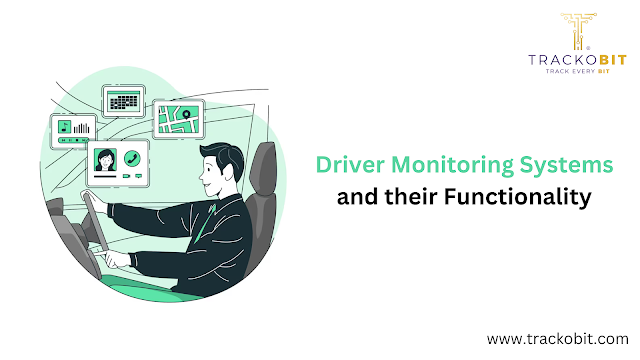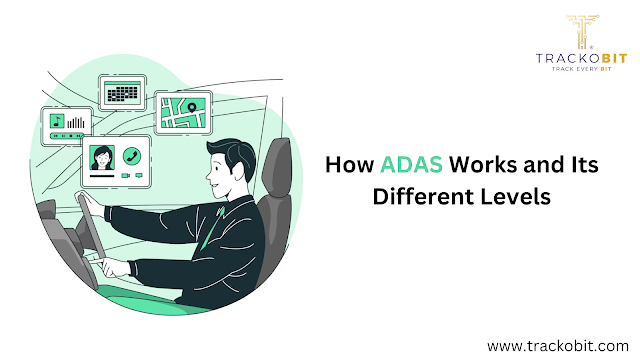What is a Fuel Management System? Top Benefits & Features
Do you know fuel cost is the highest variable cost for any fleet? Fuel costs for heavy-duty truck fleets are by far the biggest spend (which is equal to or more than 60% of total operation costs).
Businesses cannot control diesel’s fluctuating prices but they can definitely optimise their fuel consumption; by choosing the best fuel management system software.
What is a Fuel Management System?
The fuel management system software as an inherent part of a fleet management system helps monitor, optimise, and control fuel consumption within vehicles. The system, driven by geospatial telematics, helps accurately measure how much fuel is consumed for the entire fleet trip-wise, even when ignition is off.
Fuel tank monitoring lets fleet managers:
Measure current volumes of fuel tank refill.
Detects fuel leaks or theft from the tank to help prevent it.
How does it work?
Fuel level sensors are required to be installed in the desired vehicle. The installed hardware collects the real-time reading of fuel levels through electronic signals and shares it through the software. The received electronic signals are converted into liters for clear understanding.
Benefits of Fuel Management System - Key to Reduced Fuel Bills & Thefts
Modern fleet owners upon investing in fuel monitoring systems are proven to optimise fuel consumption, preserve fuel wastage, and gain fuel economy.
Improved Efficiency
Real-time intel on fuel consumption patterns or insights about theft or pilferage helps businesses optimise routes, curb thefts, and improve driving practices. It overall helps enhance any vehicle’s lifespan which yields better operational efficiency.
Cost Saving
Better efficiency leads to reduced fuel bills and more profits. The software allows managers to identify costly operational inefficacies emerging from fuel wastage/theft or bad driving practices. This as a result helps take action that leads to better fuel economy.
Improved fuel economy is a key to reducing overall fleet costs. The software helps evaluate data about fuel transactions, which brand’s fuel brings better economy and compares fuel usage across vehicles. It also helps break down fuel spending to eventually improve fuel buying behavior.
Many delivery businesses can confidently say they have been able to reduce 20% fuel costs ever since they upgraded to the fuel management system software.
Theft Prevention
Fuel siphoning also known as the illegal transfer of diesel from vehicles is a frightening experience for fleet operators. The fuel monitoring systems provide real-time notifications if any slight fuel pilferage is observed, even when the vehicle is parked lowkey in a lot. This helps managers take immediate action to prevent it.
Less Fuel Wastage
Vehicle idling, harsh acceleration, or reckless driving behaviour are a few reasons that result in fuel wastage. A fleet management system can help identify the occurrence of such driving behaviours to take action. A fuel monitoring system in parallel will help generate reports and insights to get detailed information on fuel consumption, mileage, and refill activities.
5. Reduced Carbon Footprints
The software lets fleet operators optimise routes and fuel consumption with real-time monitoring. Optimised fuel consumption leads to less fuel wastage which further helps in reducing carbon footprints.
6. Better Compliance
Businesses with multiple delivery vehicles are required to adhere to the Government’s strict regulations for greenhouse gas emissions. Upon failing to do so, they can end up paying hefty fine costs.
Best fuel management software is designed to align with the area’s compliance policies. The software helps keep up with fleet compliance related to fuel usage and emission norms set by the government.
Top Features to Ensure with Fuel Management Software
Here are a few features that you must look into advanced fuel management solutions.
Instant Refill/Drainage Alerts
Fuel management software must be designed to offer custom alerts and notifications like:
Basic leak or drainage alerts
Fuel fill reports
Sudden tank activity alerts
Possible fuel theft alarms
Such custom alerts or notifications via fuel management solutions help fleet managers take corrective actions right on time.
Detailed Fuel Reports
Make sure the software you are choosing offers comprehensive data-driven fuel reports. The report should offer graphical data to evaluate or compare the performances of drivers, vehicles, and routes to make well-informed decisions.
Comprehensive Mileage Report
The system should offer an advanced analytical dashboard with colour-coded, icon-driven graphical reports to draw actionable insights on vehicles like their mileage and driving conditions.
Reasonable Pricing
Price is always a detrimental factor when choosing the right fuel monitoring software. Businesses must choose a system that offers high-end features at a cost that your business can afford.
Hack-proof
The Fleet of vehicles operates around sensitive data, like customer information, addresses, and other correspondence details. No enterprise would ever wish to compromise that. This is why it's important to ensure that the fuel monitoring software you are choosing offers high-end security capabilities.
Final Thoughts!
A fuel management system software helps optimise fuel usage, curbs theft, and foster fuel economy and vehicle efficiency. Real-time monitoring, data analysis for consumption trends, custom alerts, and reasonable pricing are a few features that you must look for in an advanced fuel monitoring software.
Related Blog:- Fuel Savings Are Critical For Small Business Survival
How To Reduce Fuel Costs While Boosting Fleet Safety
5 Ways to Manage Fuel Consumption for Fleet Businesses
.png)

.png)

Comments
Post a Comment